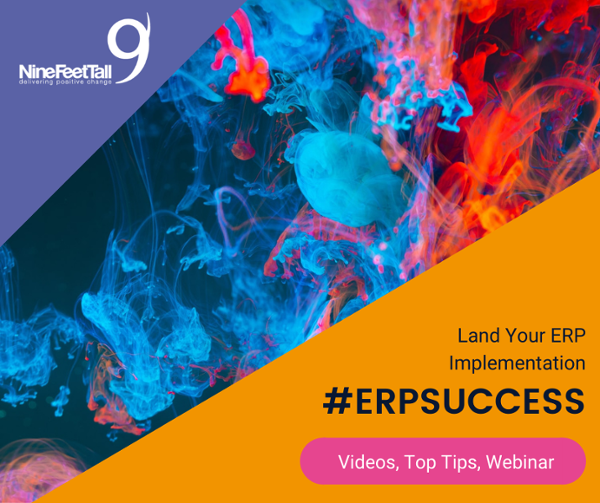Enterprise Resource Planning (ERP) is a type of software system which supports organisations in managing and automating key business processes under a single solution. ERP systems can span across many core functions of the organisation – including Finance, Human Resources, Manufacturing and Supply Chain amongst others. ERP is rapidly becoming considered as the leading technical investment priority to replace legacy systems and integrate departments within organisations.
In this blog, we will look at the top 5 ways in which ERP can improve business efficiency.
Streamlining and automating business processes
An ERP software automates business processes to increase efficiency across key departments. Automating business processes is significant in improving business efficiency as manual processes are often time-consuming, repetitive, and prone to mistakes. Reducing manual tasks will free up employee time to focus on other responsibilities and boost productivity. Standardised processes increase accuracy and consistency of key activities. Managers can set up alerts to ensure any issues are dealt with quickly. Processes can be automated across departments and multiple locations – meaning global organisations can experience further efficiencies.
Improved Customer Satisfaction
Maintaining customer satisfaction where inventory data is stored across multiple platforms can be difficult – especially where the customer requires product information quickly. An ERP system improves satisfaction by maintaining updated information and producing real-time data which is readily accessible for customers.
Most ERP systems provide their own CRM (Customer Relationship Management) modules. CRM modules improve business efficiency by ensuring orders are simplified and centralised. Purchase orders, inventory, billing, and invoicing are all supported and the real-time data further informs forecasts and provides tracking information which is highly valued by customers. The CRM optimises workflows across various departments, enabling the departments to work together to provide customers with their orders on time and under budget.
ERP software is also significant in growing the business, as it increases customer communication which can in turn lead to new opportunities and sales.
Also find out about the top benefits of ERP in inventory management.
Increased Collaboration
Strong collaboration is a critical element of any successful organisation. Without an ERP system, employees are often required to input data to various systems used in their department or to trade data across systems. Within an ERP system, data only needs to be entered once in order to be visible across all departments. ERP is significant in improving collaboration as all employees will have access to a single database, with updated information and the opportunity to share data through workflows when needed.
More useful and simplified reporting
An end-to-end ERP software enables organisations to collect, schedule, store and analyse data in reports across departments in a single location. An ERP software eradicates the need to manually collate report data or encounter data-entry errors. Instead, Managers have access to automated real-time report options with a single source of the truth, and increased visibility to analyse data in a more strategic light. A full birds-eye view of the organisations performance further provides more actionable insight and trends for senior leadership. Whilst all organisations are different, an ERP allows reports to be customised to ensure the right information is captured for each organisation.
In this way, ERP is crucial to improving business efficiency through simplified reporting procedures and generating more useful reports.
Explore our ERP Implementation services at Nine Feet Tall.
Increased data security
With a growing increase of cyberattacks, data security is an increasing priority for organisations. Exchanging data across various systems increases the vulnerability of data to attacks, this is especially significant where old systems are out of data or are at risk of becoming unsupported. Compared to legacy systems, cloud ERP systems have integrated security features. For example, automatic alerts can be set up to avoid unapproved activity such as downloads or data exporting. ERP offers greater business efficiency with a single database backed up by centralised servers to minimise data security risks.
If you’d like more information or advice on managing your ERP transformation then please get in touch with us today.




